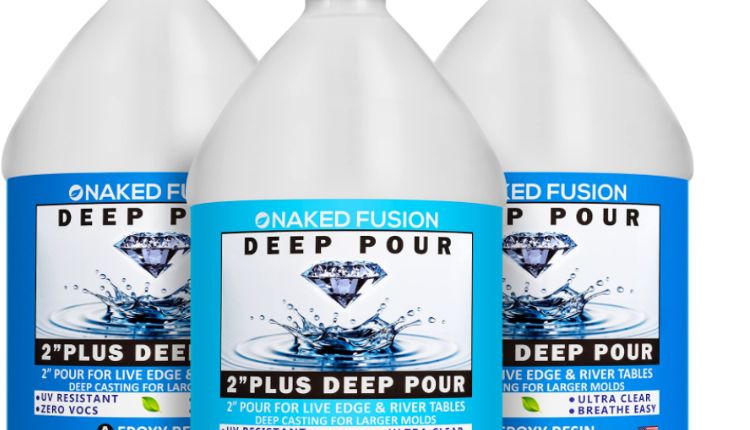Deep pour epoxy has become a popular material for creating stunning and unique surfaces, such as countertops, tables, and floors. However, the environmental impact of deep pour epoxy is a growing concern. This essay will explore the environmental impact of deep pour epoxy and sustainable alternatives.
Epoxy resins have been widely used in various industries for their excellent adhesive and protective properties. However, traditional epoxy resins are not environmentally friendly due to their high toxicity and non-biodegradability. Deep pour epoxy, in particular, is a type of epoxy resin that is commonly used for creating thick layers of coating or casting. While it has its benefits, it also has its drawbacks in terms of sustainability. Fortunately, there are sustainable alternatives to deep pour epoxy that can provide similar results without harming the environment.
Deep pour epoxy is a synthetic resin that is made from petroleum-based chemicals. The production of these chemicals requires significant amounts of energy and releases greenhouse gasses into the atmosphere. Additionally, the production process generates hazardous waste that can harm the environment if not disposed of properly.
The use of deep pour epoxy also has negative impacts on the environment. When applied to surfaces, it emits volatile organic compounds (VOCs) that contribute to air pollution. These VOCs can cause respiratory problems and other health issues for humans and animals.
Furthermore, deep pour epoxy is not biodegradable and can take hundreds of years to break down in landfills. This means that once it is discarded, it will remain in the environment for a long time, potentially causing harm to wildlife and ecosystems.
Sustainable alternatives to deep pour epoxy are available that have less impact on the environment. One such alternative is natural stone. Natural stone is a durable material that can be used for countertops, floors, and other surfaces. It is also biodegradable and does not emit harmful VOCs.
Another sustainable alternative is recycled glass. Recycled glass can be used to create stunning surfaces that are both durable and environmentally friendly. It is made from recycled materials, which reduces waste and conserves resources.
Wood is another sustainable alternative to deep pour epoxy. Wood is a renewable resource that can be harvested sustainably. It can be used for countertops, tables, and other surfaces with proper sealing to prevent water damage.
One of the most promising sustainable alternatives to deep pour epoxy is bio-based epoxy resin. Bio-based epoxy resins are made from renewable resources such as plant oils and sugars, making them biodegradable and non-toxic. They also have a lower carbon footprint compared to traditional epoxy resins since they do not rely on fossil fuels for production. Bio-based epoxy resins have been found to have similar mechanical properties as traditional epoxy resins, making them suitable for various applications such as coatings, adhesives, and composites.
Another sustainable alternative to deep pour epoxy is water-based epoxy resin. Water-based epoxy resins are made by replacing the organic solvents used in traditional epoxy resins with water. This makes them less toxic and safer to handle than traditional epoxy resins. Water-based epoxy resins also have a lower VOC (volatile organic compound) content, which means they emit fewer harmful chemicals into the environment. While water-based epoxy resins may not be as strong as traditional or bio-based epoxy resins, they are still suitable for many applications such as coatings and adhesives.
A third sustainable alternative to deep pour epoxy is recycled plastic resin. Recycled plastic resin is made from post-consumer plastic waste that has been cleaned and processed into a usable material. This makes it an environmentally friendly option since it reduces the amount of plastic waste that ends up in landfills or oceans. Recycled plastic resin can be used for various applications such as coatings, adhesives, and composites. While it may not be as strong as traditional or bio-based epoxy resins, it still provides a viable alternative that is both sustainable and cost-effective.
One way is to use eco-friendly additives such as natural pigments or fillers instead of synthetic ones. Natural pigments and fillers are made from renewable resources such as plant extracts or minerals, making them biodegradable and non-toxic. Another way is to use renewable energy sources such as solar or wind power during the production process.
It is important to note that while these sustainable alternatives may provide similar results to deep pour epoxy, they may not be suitable for all applications. It is important to consider the specific requirements of each project before choosing a sustainable alternative.
In addition to these alternatives, there are also eco-friendly epoxies available on the market. These epoxies are made from natural materials such as soybeans or castor oil instead of petroleum-based chemicals. They emit fewer VOCs than traditional epoxies and are biodegradable.
In conclusion, the environmental impact of deep pour epoxy is significant due to its production process, use, and disposal. Sustainable alternatives such as natural stone, recycled glass, wood, and eco-friendly epoxies are available that have less impact on the environment. By choosing these alternatives over deep pour epoxy, we can reduce our environmental footprint while still creating beautiful and functional surfaces.

